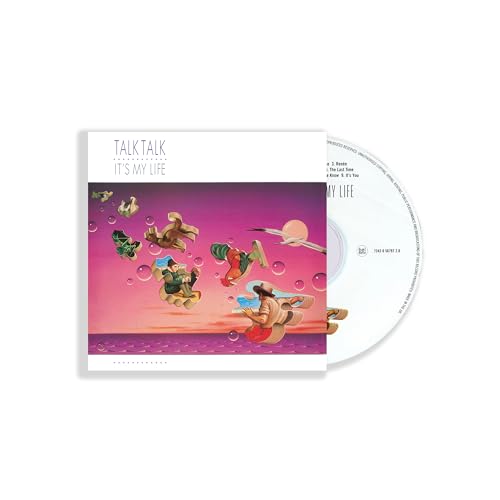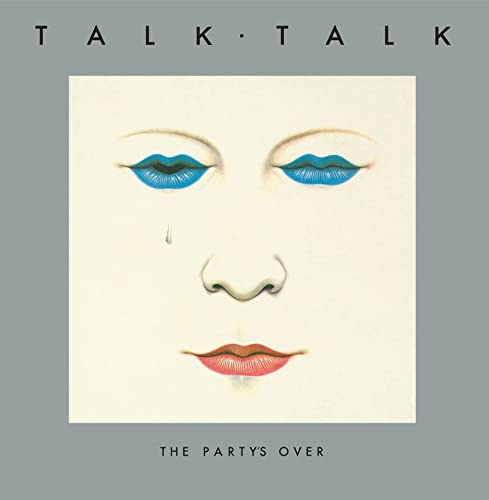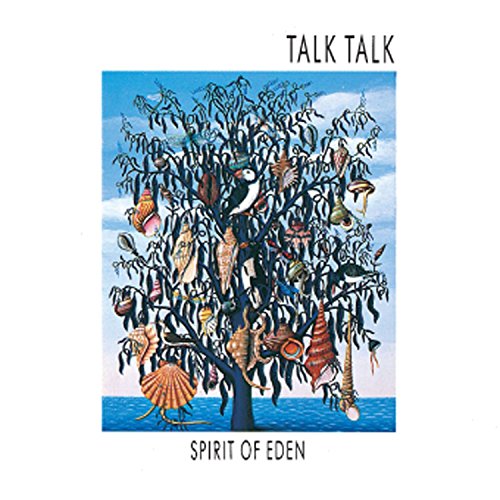You’ve got great taste.
Sign in to follow your favorite artists, save events, & more.
Sign In


Talk Talk
124,456 Followers
Never miss another Talk Talk concert. Get alerts about tour announcements, concert tickets, and shows near you with a free Bandsintown account.
Follow
No upcoming shows
Send a request to Talk Talk to play in your city
Request a Show
Similar Artists On Tour
New Order
1M Followers
Follow
Duran Duran
1M Followers
Follow
Ultravox
60K Followers
Follow
ABC
85K Followers
Follow
Soft Cell
168K Followers
Follow
U2
7M Followers
Follow
concerts and tour dates
About Talk Talk
Talk Talk are better known for their early synthpop/new wave singles, including the hits Today, Talk Talk, It's My Life, Such a Shame and Life's What You Make It. They are also considered forerunners to the post-rock genre for their later experimental albums.
Although they were identified with bands such as Duran Duran during the New Wave movement, Talk Talk had a progressive depth their contemporaries lacked. After keyboardist Simon Brenner was replaced with producer and unofficial member Tim Friese-Greene, each successive Talk Talk release became more sophisticated and original.
They achieved success in 1984/85 in continental Europe with the album It's My Life and the single Such a Shame which became a hit in several countries during the period. Ironically, the album was relatively ignored in Talk Talk's native England.
Talk Talk eventually abandoned the New Wave style completely with The Colour of Spring in 1986. The single "Life's What You Make It" allowed the album to become their greatest success in England. In 1988, Spirit of Eden relied on improvised structures and diverse, natural instruments (violin, harmonica) instead of a synth-driven, pop song mould. The eccentric sound clashed with their label, EMI, and they soon moved to Verve Records to release Laughing Stock. Laughing Stock crystallized the experimental sound the band started with Spirit of Eden. Both Spirit of Eden and Laughing Stock are often retroactivley labeled post-rock albums.
After Laughing Stock, Talk Talk broke up. Paul Webb and Lee Harris went on to form the band .O.Rang, while Tim Friese-Greene started recording under the name Heligoland. In 1998, Mark Hollis released his eponymous debut Mark Hollis. According to Hollis's management, he has now retired. Webb collaborated under the name of Rustin Man with Beth Gibbons and released "Out of Season" in 2002, while Harris was featured on the Bark Psychosis album of 2004.
Although they were identified with bands such as Duran Duran during the New Wave movement, Talk Talk had a progressive depth their contemporaries lacked. After keyboardist Simon Brenner was replaced with producer and unofficial member Tim Friese-Greene, each successive Talk Talk release became more sophisticated and original.
They achieved success in 1984/85 in continental Europe with the album It's My Life and the single Such a Shame which became a hit in several countries during the period. Ironically, the album was relatively ignored in Talk Talk's native England.
Talk Talk eventually abandoned the New Wave style completely with The Colour of Spring in 1986. The single "Life's What You Make It" allowed the album to become their greatest success in England. In 1988, Spirit of Eden relied on improvised structures and diverse, natural instruments (violin, harmonica) instead of a synth-driven, pop song mould. The eccentric sound clashed with their label, EMI, and they soon moved to Verve Records to release Laughing Stock. Laughing Stock crystallized the experimental sound the band started with Spirit of Eden. Both Spirit of Eden and Laughing Stock are often retroactivley labeled post-rock albums.
After Laughing Stock, Talk Talk broke up. Paul Webb and Lee Harris went on to form the band .O.Rang, while Tim Friese-Greene started recording under the name Heligoland. In 1998, Mark Hollis released his eponymous debut Mark Hollis. According to Hollis's management, he has now retired. Webb collaborated under the name of Rustin Man with Beth Gibbons and released "Out of Season" in 2002, while Harris was featured on the Bark Psychosis album of 2004.
Show More
Genres:
Alternative, Alternative Rock, Jazz, Synthpop, Pop, Rock, New Romantic, New Wave, Post-rock, Progressive Rock
Band Members:
Mark David Hollis, Paul Webb, Lee Harris
No upcoming shows
Send a request to Talk Talk to play in your city
Request a Show
Similar Artists On Tour
New Order
1M Followers
Follow
Duran Duran
1M Followers
Follow
Ultravox
60K Followers
Follow
ABC
85K Followers
Follow
Soft Cell
168K Followers
Follow
U2
7M Followers
Follow
concerts and tour dates
About Talk Talk
Talk Talk are better known for their early synthpop/new wave singles, including the hits Today, Talk Talk, It's My Life, Such a Shame and Life's What You Make It. They are also considered forerunners to the post-rock genre for their later experimental albums.
Although they were identified with bands such as Duran Duran during the New Wave movement, Talk Talk had a progressive depth their contemporaries lacked. After keyboardist Simon Brenner was replaced with producer and unofficial member Tim Friese-Greene, each successive Talk Talk release became more sophisticated and original.
They achieved success in 1984/85 in continental Europe with the album It's My Life and the single Such a Shame which became a hit in several countries during the period. Ironically, the album was relatively ignored in Talk Talk's native England.
Talk Talk eventually abandoned the New Wave style completely with The Colour of Spring in 1986. The single "Life's What You Make It" allowed the album to become their greatest success in England. In 1988, Spirit of Eden relied on improvised structures and diverse, natural instruments (violin, harmonica) instead of a synth-driven, pop song mould. The eccentric sound clashed with their label, EMI, and they soon moved to Verve Records to release Laughing Stock. Laughing Stock crystallized the experimental sound the band started with Spirit of Eden. Both Spirit of Eden and Laughing Stock are often retroactivley labeled post-rock albums.
After Laughing Stock, Talk Talk broke up. Paul Webb and Lee Harris went on to form the band .O.Rang, while Tim Friese-Greene started recording under the name Heligoland. In 1998, Mark Hollis released his eponymous debut Mark Hollis. According to Hollis's management, he has now retired. Webb collaborated under the name of Rustin Man with Beth Gibbons and released "Out of Season" in 2002, while Harris was featured on the Bark Psychosis album of 2004.
Although they were identified with bands such as Duran Duran during the New Wave movement, Talk Talk had a progressive depth their contemporaries lacked. After keyboardist Simon Brenner was replaced with producer and unofficial member Tim Friese-Greene, each successive Talk Talk release became more sophisticated and original.
They achieved success in 1984/85 in continental Europe with the album It's My Life and the single Such a Shame which became a hit in several countries during the period. Ironically, the album was relatively ignored in Talk Talk's native England.
Talk Talk eventually abandoned the New Wave style completely with The Colour of Spring in 1986. The single "Life's What You Make It" allowed the album to become their greatest success in England. In 1988, Spirit of Eden relied on improvised structures and diverse, natural instruments (violin, harmonica) instead of a synth-driven, pop song mould. The eccentric sound clashed with their label, EMI, and they soon moved to Verve Records to release Laughing Stock. Laughing Stock crystallized the experimental sound the band started with Spirit of Eden. Both Spirit of Eden and Laughing Stock are often retroactivley labeled post-rock albums.
After Laughing Stock, Talk Talk broke up. Paul Webb and Lee Harris went on to form the band .O.Rang, while Tim Friese-Greene started recording under the name Heligoland. In 1998, Mark Hollis released his eponymous debut Mark Hollis. According to Hollis's management, he has now retired. Webb collaborated under the name of Rustin Man with Beth Gibbons and released "Out of Season" in 2002, while Harris was featured on the Bark Psychosis album of 2004.
Show More
Genres:
Alternative, Alternative Rock, Jazz, Synthpop, Pop, Rock, New Romantic, New Wave, Post-rock, Progressive Rock
Band Members:
Mark David Hollis, Paul Webb, Lee Harris
Get the full experience with the Bandsintown app.





